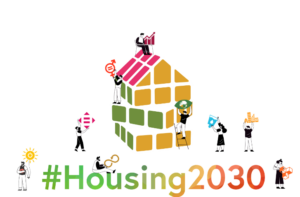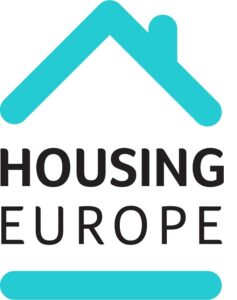Landsbyggefonden – a Danish national fund for non-profit housing

In Denmark social housing is a central part of Danish welfare society. It is non-profit and universal, to maintain a wide-spectrum tenant social mix for individual and societal benefit.
Description
Its main purpose is to deliver affordable housing for all in need. Today almost 1 million people in Denmark, live in the social and affordable housing sector, that is, one in six people and 600,000 housing units and the share of social housing provided per person is growing.
Actors involved
Landsbyggefonden
Scale
National
More information
The National Building Fund (in Danish: Landsbyggefonden – LBF – https://lbf.dk/) is a cornerstone of the Danish affordable and social housing model, ensuring a high housing stock standard and better tenant well-being. It also plays a role in countercyclical efforts, such as the COVID-19 recovery stimulus. LBF was established in 1967 and is financed by tenant rents from the social and affordable housing provided by non-profit housing organizations.
When mortgage loans for dwelling construction have been repaid, tenants pay rents at the same level, with the extra going into the LBF as a saving. This fund finances the expansion of new affordable and social housing and renovation of existing properties. This includes improvements of both inside and outdoor areas, modernization of buildings to include access for elderly and disabled people, and energy improvements. The fund is also able to finance the demolition cost in vulnerable social housing areas, and to support infrastructural changes.
LBF provides a useful mechanism to ensure self-financing in the social and affordable housing sector. Savings are recycled to help maintain and improve dwellings and provide additional housing. It thereby provides a sealed finance circuit, reducing government need to reinvest in new social housing, and facilitates long-term planning for social housing funding. It also helps to even out variations in the financial strength of different social housing providers, in the costs of developing different estates, and thereby in rents charged which reflect development costs.
The purpose of the Fund is to build socially cohesive, safe, and sustainable communities. A particular focus is investments in social activities and rental price reductions. Efforts are organized in local partnerships such as schools, municipalities or NGOs, aiming to promote tenant employment opportunities and educational performance.
The Fund is managed by a nine-member board, including representatives of housing organizations, tenants and the two largest municipalities in Denmark. However, its budget must be approved by the housing minister.
The Danish government wants LBF to increase investments in energy-efficiency renovations, to play a key role in meeting climate goals and post-COVID-19 economic recovery.
Michelle Norris and Michael Byrne, “Funding resilient and fragile social housing systems in Ireland and Denmark”, Housing Studies, June 2020.
For description of the use of the fund, see also Kenneth Gibb, K, Duncan Maclennan and Mark Stephens, Innovative Financing of Affordable Housing: international and UK perspectives (York: Joseph Rowntree Foundation, 2013). Available at https://www.jrf.org.uk/sites/default/files/jrf/migrated/files/affordable-housing-finance-full.pdf.
European Commission, Build Up, “Green recovery for Denmark: a new renovation scheme for the social housing sector”, 25 May 2020. Available at https://www.buildup.eu/en/news/green-recovery-denmark-new-renovation-scheme-social-housing-sector.
The Danish government will allocate DKK 30 billion from Landsbyggefonden (National Building Fund) to renovation of social housing during the period 2020-2026: DKK 18.4 billion (EUR 2.4 billion) for renovation of 72,000 social housing in the fund’s support queue and the remaining DKK 11.6 billion (EUR 1.5 billion) for future renovations until 2026 (Housing Europe, “Green recovery for Denmark: a new renovation scheme for the social housing sector: A renovation scheme with a three-fold objective” (blog), 13 May 2020. Available at https://www.housingeurope.eu/blog-1512/green-recovery-for-denmark-a-new-renovation-scheme-for-the-social-housing-sector).

An initiative of:


